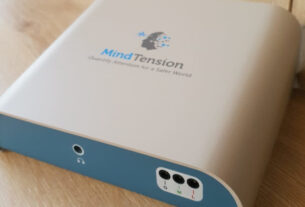There is a high probability that many children who receive medication for attention-deficit hyperactivity disorder (ADHD) actually suffer from breathing disorders during their sleep, according to researchers at the Goldschleger School of Dental Medicine at Tel Aviv University (TAU).
Due to the incorrect diagnosis, the real problem is left untreated, and the unnecessary treatment may even make the situation worse, the researchers said.
The study’s findings showed that children who suffer from breathing disorders during sleep received ADHD medication at a rate seven times higher than children who don’t suffer from sleep-disordered breathing.
Dr. Shani Kaminsky-Kurtz, Dr. Sigalit Blumer, Prof. Ilana Eli, Dr. Alona Emodi-Perlman, and Dr. Yarden Shreiber-Fridman found a clear correlation between sleep-disordered breathing in children and the prescription of ADHD medication, alongside a variety of other problems, including tubes for ear infections and tonsillectomies in the past.
Two articles on the subject were published in the Journal of Clinical Medicine under the titles “Sleep-Related Breathing Disorders in Children – Red Flags in Pediatric Care” and “Sleep Bruxism in Children – What Can Be Learned from Anamnestic Information.”
According to their findings, children who suffer from breathing disorders during sleep receive ADHD medication at a much higher rate than children who don’t suffer from sleep-disordered breathing. As such, there is a high probability that many children suffering from sleep disorders are treated with medication for ADHD due to a misdiagnosis.
Sleep disorders among children are fairly common
According to the researchers: “Sleep breathing disorders are a fairly common phenomenon among children and can cause a variety of problems – developmental, behavioral, and physical. But despite its importance, awareness of the issue is quite low, both among parents and among medical professionals who care for children, so in many cases, the disorder goes undiagnosed or misdiagnosed.”
Blumer explained that “for the most part, sleep breathing disorders in children usually present themselves as snoring (according to various studies, between 8% to 27% of children snore in their sleep) and/or partial or as complete interruptions of breathing (between 2% to 3% of children suffer from an extreme state of obstructive respiratory arrest during sleep).
These disorders disrupt the oxygen saturation levels in the blood during sleep, which is especially important in children because most of the growth and development processes take place during sleep.
The lack of oxygen in the blood can harm the growth and development of the brain and cause cognitive and behavioral disorders while awake – such as learning difficulties, hyperactivity, fatigue, and lack of concentration. These symptoms are similar to the characteristics of ADHD or ADD (attention-deficit disorders) that often lead to a misdiagnosis and treatment with drugs such as Ritalin, which is ineffective and causes side effects.”
Kaminsky-Kurtz added that “despite the great significance of sleep-disordered breathing, there is still a considerable under-diagnosis of the phenomenon among children, in the world in general and in Israel in particular. The most reliable way to diagnose it is by monitoring them in a sleep lab, but this is an expensive procedure with limited availability, and it is also unsuitable for children.
For this reason, a reliable and more accessible diagnostic tool was developed in the US, which has been proven to be simple and effective: the Pediatric Sleep Questionnaire (PSQ). The questionnaire, which is meant to be filled out by the child’s parents, includes 22 yes/no questions and refers to three main categories: snoring and breathing problems during sleep, alertness levels during the day, and behavior during the day. Answering ‘yes’ to eight or more questions requires further investigation.”
The study was conducted among 227 children aged four to 12 who were treated at the children’s clinic of the TAU’s School of Dentistry in the years 2020 to 2022. The children underwent a comprehensive clinical examination of the oral cavity, and their parents were asked to fill out a PSQ questionnaire alongside a questionnaire surveying the child’s general health.
A statistical analysis of the findings of the tests and questionnaires revealed an unequivocal picture – children who suffer from sleep-disordered breathing were taking ADHD medication at a rate seven times higher than children without sleep-disordered breathing.
In addition, the findings indicated clear correlations between the disorder and the symptoms of discontinuous sleep (six times higher than their counterparts), mouth breathing (five times higher), and snoring (three times higher).
Emodi-Perlman and Eli warned that “there is a high probability that many of the children who suffer from sleep breathing disorders are receiving medication for ADHD due to a misdiagnosis. Not only is the real problem being left untreated, but the unnecessary treatment may even make the situation worse.
The team members recommend that medical professionals who treat children – dentists, family doctors, pediatricians, and others – ask each patient a simple series of questions. A positive finding should raise a red flag and requires further inquiries.”




